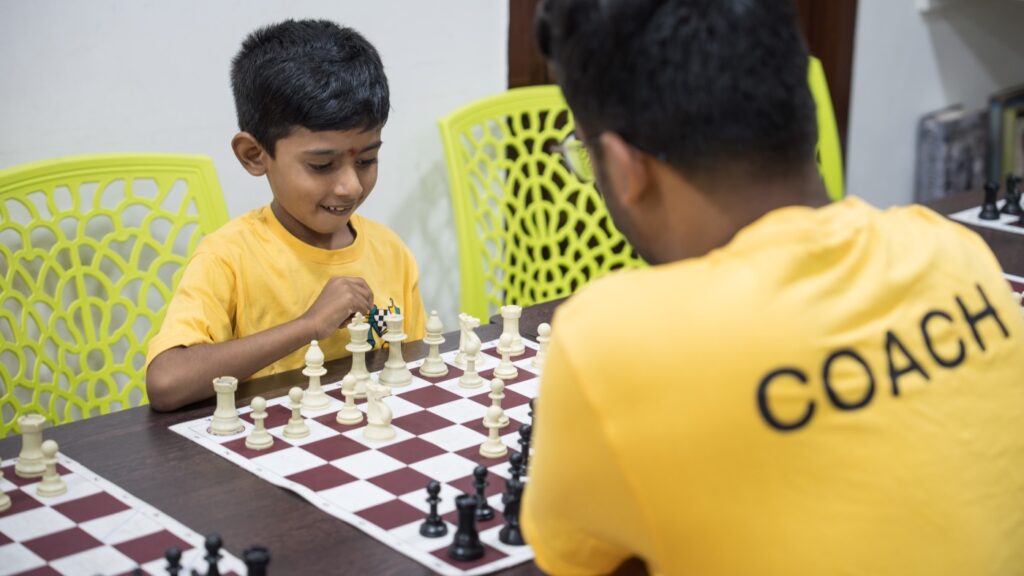
Seven-year-old Lakshan is coached by Selvabharathy, a trainer at Vishnu Prasanna’s Chess Academy in Chennai
The landscape of global chess is shifting, with India emerging as a formidable player. At the recently concluded FIDE Women’s Chess World Cup in Georgia, 19-year-old Divya Deshmukh surprised many by defeating the world’s sixth-ranked player, Koneru Humpy, in a nail-biting final. Deshmukh’s victory is a testament to the changing dynamics in a sport traditionally dominated by European and Russian players. Her win also marks a significant milestone as she becomes India’s 88th grandmaster, enhancing India’s presence in the chess world.
Throughout the month-long tournament, Deshmukh faced numerous higher-ranked opponents, often pushing them to their limits and forcing critical errors under pressure. After her victory against Humpy, she reflected on her performance, saying, “I’m pretty sure at some point I messed it up,” before acknowledging the thrill of her achievement when reminded, “Divya, you just won the World Cup!”
India’s ascent in chess is not a mere coincidence but is driven by a combination of grassroots initiatives, cultural shifts, and historical significance. The country’s chess teams showcased extraordinary talent last year, sweeping the Chess Olympiad held in Budapest. In December 2022, Gukesh Dommaraju became the youngest world champion at age 18, further solidifying India’s status in the chess community.
Chennai: The Epicenter of Chess Excellence
While Deshmukh hails from Nagpur, the southern state of Tamil Nadu, particularly its capital Chennai, is recognized as the heart of Indian chess. This city has produced a third of all Indian grandmasters, including both Anand and Dommaraju. According to chess trainer Venkat Saravanan, Chennai is considered the “factory of Indian chess,” thanks to a robust system of nurturing talent from the ground up.
Schools in the city often provide scholarships to promising players, enabling them to train and compete. Local businesses frequently sponsor these athletes, while parents play a crucial role in their children’s chess journeys. Saravanan points out that despite a cultural inclination towards academic achievement, chess is increasingly seen as a viable path to success.
At the Madras Chess Academy, young players practice diligently after school, surrounded by the legacies of past champions. The academy emphasizes hard work and dedication, as evidenced by coach Vishnu Prasanna, who recently shared how even toddlers are being introduced to the game. Parents are increasingly supportive, with some going to great lengths to ensure their children can pursue chess competitively.
Challenges and Opportunities in Indian Chess
Despite the success stories, challenges remain for India’s chess ambitions. The country’s chess culture has evolved significantly since Anand’s rise to prominence in the 1990s. Anand himself notes that chess was once viewed as a distraction from academics. Now, it is recognized as a potential career path, with the Indian government providing job security and perks to top players.
Nevertheless, access to resources can be uneven. Most chess literature and software are available primarily in English, a barrier for many aspiring players. According to data from the 2011 census, only about 10% of India’s population speaks English fluently, which poses a significant hurdle for broader participation.
To combat this, Venkatesh Enumalai launched the Tamil Chess Channel on YouTube, aimed at teaching chess in Tamil. The channel has gained over 80,000 followers and serves Tamil-speaking audiences not just in India, but also in Sri Lanka and the United States. Enumalai’s efforts reflect a growing commitment to making chess more accessible.
As India continues to cultivate its chess talent pool, the potential for global dominance in the sport appears promising. With a unique blend of historical significance, cultural support, and emerging talent, the nation is poised to reshape its identity in the world of chess. “If we can nurture so many people at the bottom level,” Enumalai states, “maybe we will be able to become a number one nation.” The future of chess in India looks bright, with a passionate community ready to take on the world.






